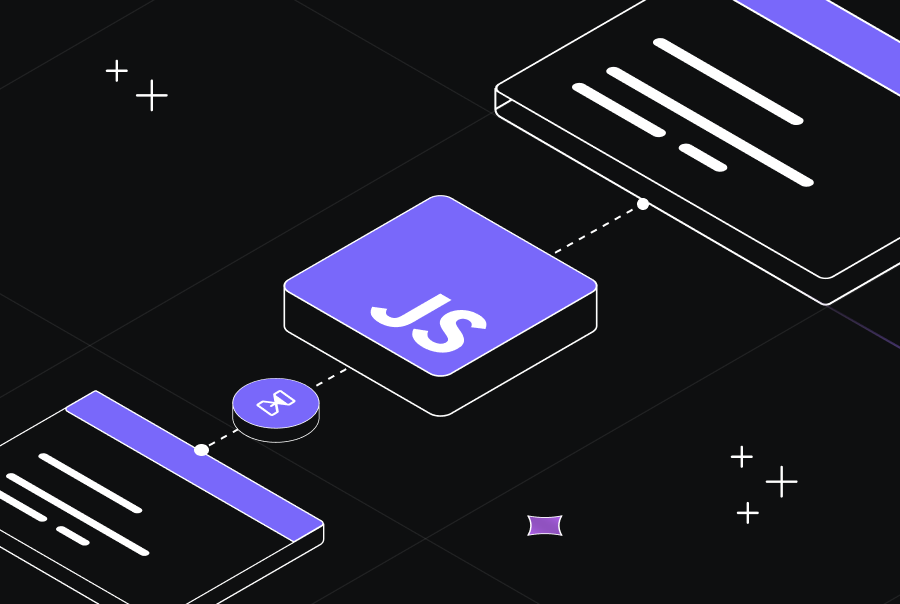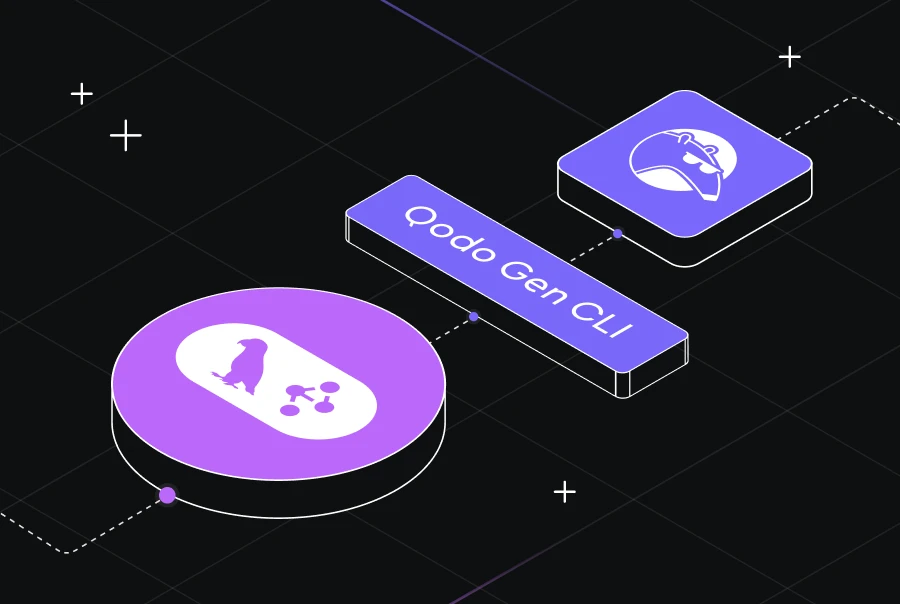Codebase Resurrection: Revive and Refactor with AI
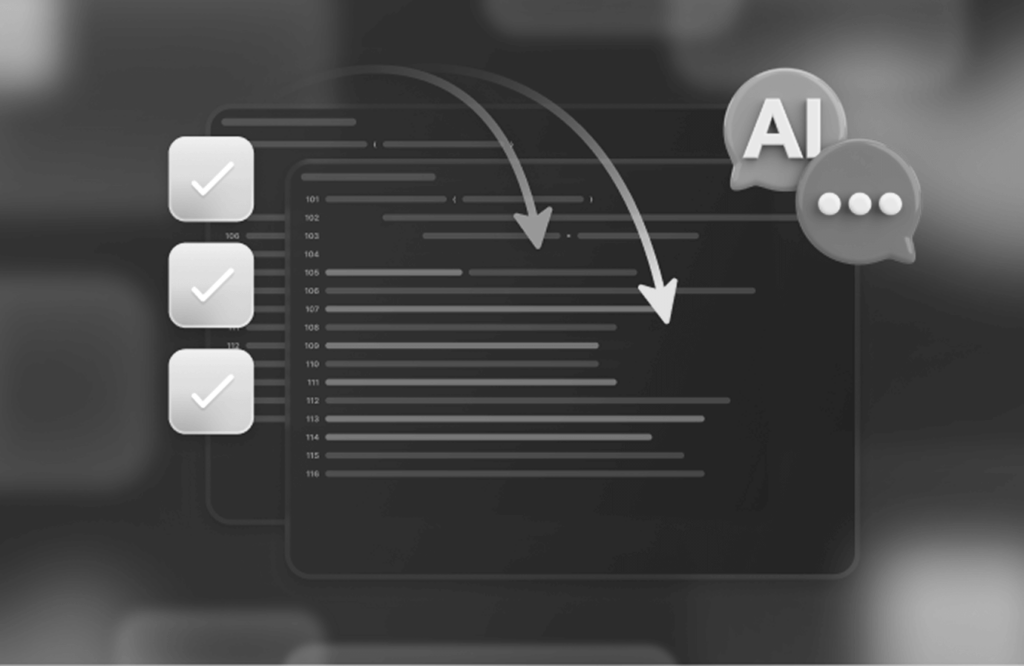

Checkout the supporting project for this blog on GitHub. A companion video can also be found on qodo’s (formerly Codium) YouTube channel.
Introduction
The software development industry is undergoing rapid changes, with AI playing a pivotal role in driving innovation. Modern developers are expected to go beyond mere coding; they must grasp the intricacies of system architecture and ensure long-term code quality. Refactoring a codebase, which is often a complex and labor-intensive task, is vital for sustaining and enhancing code quality. This blog explores how qodo’s (formerly Codium) Qodo Gen (formerly Codiumate) can streamline the refactoring process, using a practical example that illustrates AI’s potential to boost developer efficiency and optimize code maintenance in real-world situations.
Challenges of Refactoring
Refactoring a codebase is a critical yet challenging task that requires a thoughtful approach, especially in large or legacy systems where code complexity and technical debt can be deeply entrenched.
The key is to navigate the intricacies of untangling deeply intertwined modules, decoupling dependencies, and restructuring poorly organized code while minimizing the risk of introducing new issues such as bugs, performance degradation, or breaking changes. This process demands a careful balance between improving code quality—such as enhancing readability, optimizing performance, and ensuring adherence to coding standards—and maintaining system stability.
Automated tools for static code analysis can help identify code smells, dead code, and potential refactoring candidates, while AI-driven code generation and suggestion engines can propose real-time improvements, detect subtle bugs, and offer refactoring strategies.
A comprehensive testing strategy is essential to catch any regressions, and it’s crucial to keep the team aligned and focused on the long-term benefits of the refactor, even when there’s pressure to prioritize new features.
AI as a Pair-Programmer
Generative coding tools like Qodo Gen (formerly Codiumate) have the potential to significantly enhance the refactoring process by acting as an intelligent pair-programmer. It can provide real-time suggestions, and detect bugs early in the development cycle, flagging potential issues that might otherwise go unnoticed. Qodo Gen (formerly Codiumate) can also propose refactoring strategies tailored to specific codebases such as removing redundant code.
When it comes to identifying code smells–subtle indicators of deeper problems–Qodo Gen (formerly Codiumate) can analyze large codebases to pinpoint areas where flaws might lead to technical debt. By providing optimized code structures and ensuring adherence to best practices and coding standards, Qodo Gen (formerly Codiumate) helps to maintain the overall health and performance of applications.
Let’s walk through an example of refactoring a “profile component” using Qodo Gen (formerly Codiumate).
Case Study: Refactoring the Profile Component
Setting the Stage: End-to-End Functional Testing
Before diving into refactoring, it’s essential to establish a robust end-to-end testing framework to ensure that any changes made do not introduce new issues. This step is critical and cannot be overlooked. Having functional tests on the component being refactored allows you to identify and address any changes that might affect the external callers of your component. For our “profile component”, we define several endpoints.

Initial Codebase Analysis
To start the refactoring process, we first need to understand the current state of the codebase. We examine the code, focusing on summarizing its main functionalities, methods, and fields. This initial analysis helps us identify areas that require improvement.
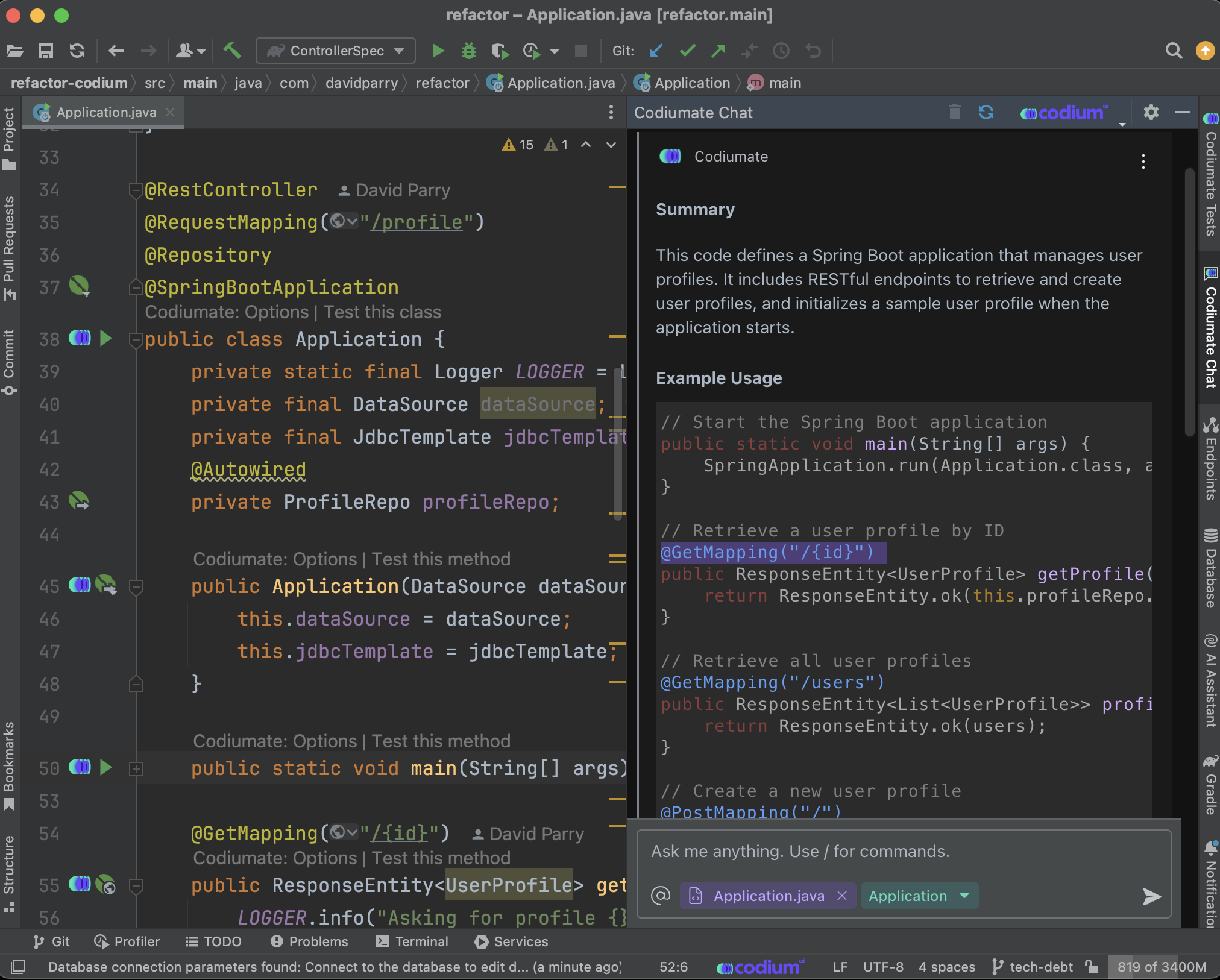
AI-Driven Refactoring
Using Qodo Gen (formerly Codiumate), we analyze the codebase to identify potential refactoring opportunities. The AI provides suggestions on how to improve the code structure and eliminate dead code. Here are some key refactoring steps:
Remove Dead Code: Focus on eliminating unused or redundant code to streamline the application.
Best Practices: Follow the AI suggestions to follow known patterns and componentize the code to include Modularity, Separation of concerns, Code organization, Maintainability, Scalability and more.
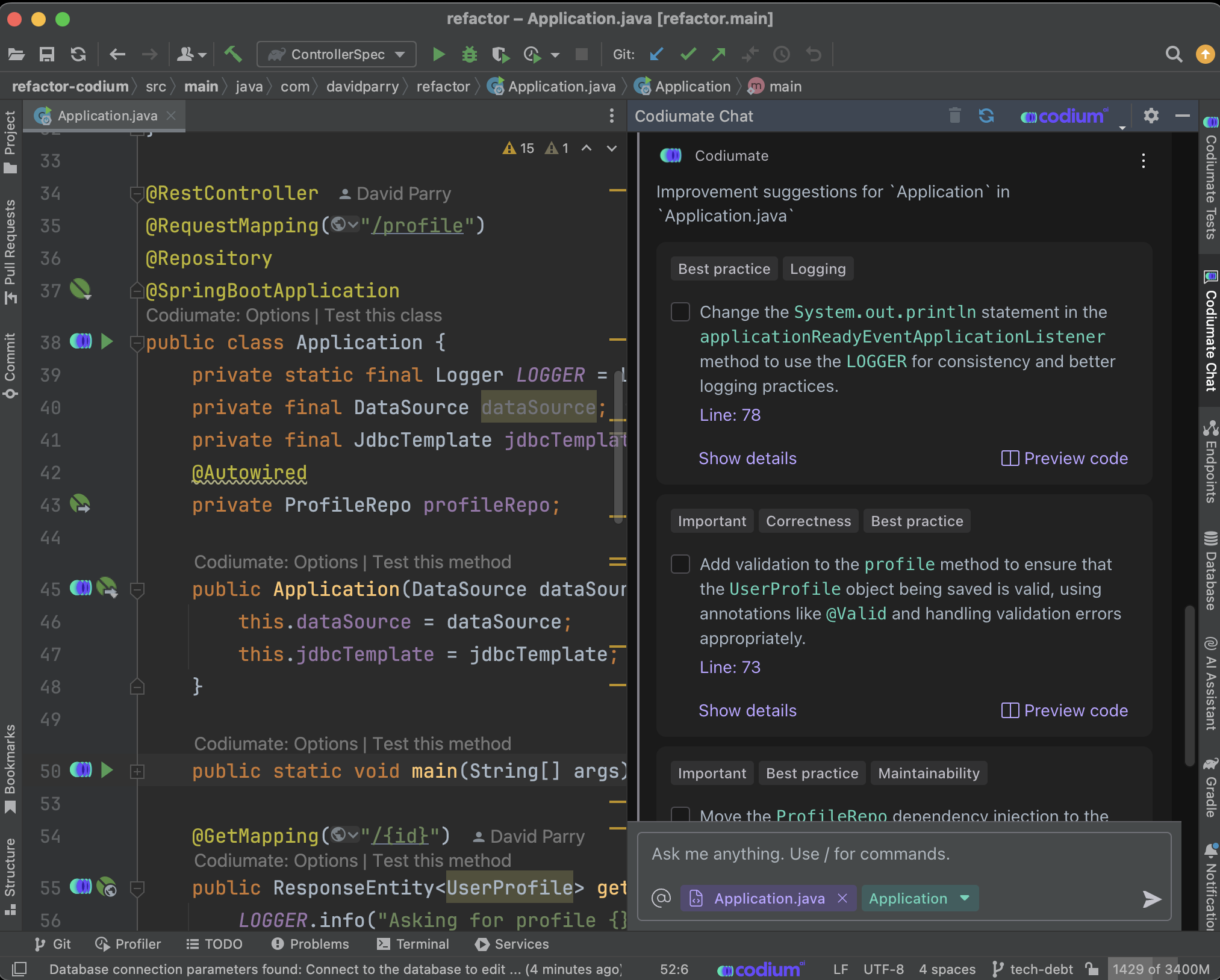
Assisted Code Changes and Testing
After applying the AI-driven refactoring suggestions, we prepare and implement the necessary code changes. The process involves making assisted changes to the codebase, running integration tests, and iterating as needed. This iterative approach ensures that the code remains functional and improves with each step.
Unit Testing: Use JUnit, Spock framework, and TestNG to test the refactored code. AI can assist in generating tests, covering happy paths and edge cases that might not immediately be apparent.

AI as an Assistant, Not the Driver
It’s crucial to recognize that AI is an assistant, not the driver. While AI tools provide valuable insights and suggestions, developers must use their knowledge and understanding of basic IDE toolsets to make informed decisions. Common IDEs offer code completion and suggestions based on patterns and structure, but the developer’s experience and understanding of the overall system are indispensable.
Recap of the Refactoring Journey
Our journey through AI-driven refactoring can be summarized as follows:
- Understanding the Codebase: We established a clear understanding of the existing codebase, focusing on the “profile component”.
- Functional Testing: Ensured robust end-to-end testing before making any changes.
- AI-Assisted Refactoring: Utilized AI to identify and implement refactoring opportunities, focusing on code structure and quality.
- Developer in the Driver Seat: Reinforced the role of the developer as the primary decision-maker, with AI as an assistant.
- Unit Testing: Leveraged AI to generate comprehensive unit tests, ensuring the refactored code is robust and reliable.
Conclusion
AI is transforming the software development landscape, providing powerful tools for code analysis and refactoring. By integrating AI into the development process, teams can systematically improve code quality and efficiency. This blog has demonstrated how qodo (formerly Codium) can assist in refactoring a “profile component”, highlighting the benefits of AI-driven insights and iterative improvement. As AI continues to evolve, its role in software development will only become more integral, offering new opportunities for innovation and excellence.

